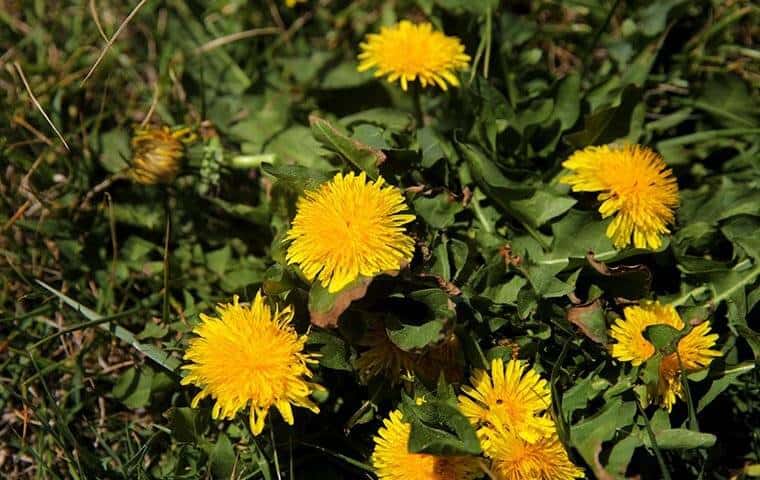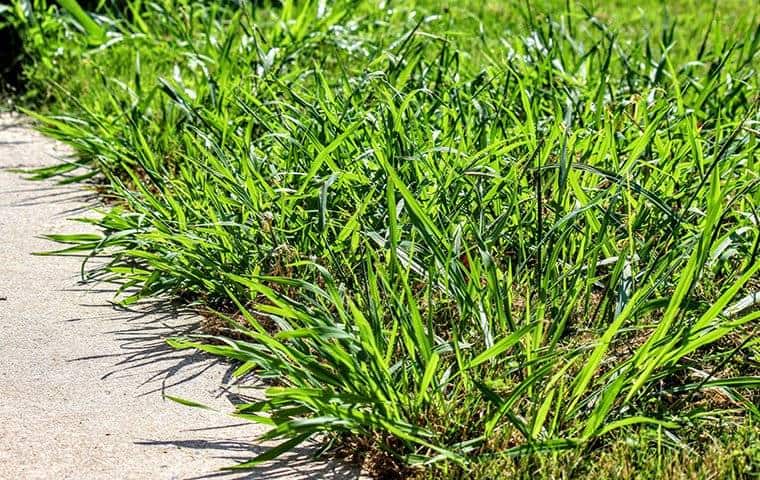If you’ve ever noticed patches of brown or dead grass in your yard, you might be dealing with lawn grubs. The immature stage of the scarab beetle (such as Japanese beetle grubs), these pests can damage grass in your backyard to the point that you will need to completely reseed it. This can be infuriating if you have spent a lot of time and resources on lawn care. If you suspect that grubs are the reason behind the destruction of your lawn, now is the time to learn about lawn grubs, recognize the signs of a grub problem, and try different lawn grub prevention tips to manage them before they can cause more damage. If you find yourself with a lawn grub infestation, Trees Hurt Too Inc. provides expert pest control in Arlington you can rely on to get rid of these pests safely and effectively.

What Are Lawn Grubs?
Lawn grubs are very small larvae, sometimes referred to as white grubs, which are the immature form of scarab beetles. Some of them will mature to become what we commonly refer to as June bugs. While seemingly harmless, lawn grubs can make short work of even the best professional lawn care services, as they voraciously feed on the root structure of grasses. While the presence of a few lawn grubs is not necessarily a cause for concern, large quantities of them can destroy grass beyond repair, necessitating extensive treatments and reseeding the lawn from the beginning.
Signs Of A Grub Problem
If your yard has been taken over by lawn grubs, you might see one of the following signs of a grub problem:
- Grass will start to turn yellow.
- Patches of visibly unhealthy grass will appear among healthy areas.
- Grass will have weak roots and will be easily pulled out of the ground.
- Grass will weaken and become susceptible to other pests and diseases.
- You will see grubs by the root structure of your lawn.
- Grass will completely die off in some areas.
If you see any of the above signs of a grub infestation, acting quickly is crucial. Lawn grubs will not go away on their own, and affected grass is unlikely to recover. For professional advice, contact Trees Hurt Too Inc.
Lawn Grub Prevention Tips
Getting rid of lawn grubs is a task best left to the professionals, as some of the products used can be hazardous if not handled properly. That being said, there are steps you can take to prevent lawn grubs in the first place, or after an extermination. For example:
- Routinely check your yard for grubs, and contact a professional pest control company to assess the damage.
- Consider using nematodes in your yard, as they can help get rid of lawn grubs.
- Don’t over-water your lawn, as lawn grubs thrive in high humidity environment when the grass is at its healthiest.
- Consider only fertilizing your lawn in the fall.
- By combining your own efforts at keeping lawn grubs at bay with regular professional pest control maintenance, you have the best chances of keeping your grass free of grubs and thriving.
How Professional Lawn Control Can Help
It can be distressing to spot lawn grubs when you’ve taken all the steps to keep them away. Fortunately, with the right methods, eradicating them is not difficult. The best time to get rid of those unwanted pests is in the summer or fall when they are smaller, using specific insecticides. Because the best window to apply treatment can be tricky to determine, you will obtain the best results by contacting an experienced pest control company. If you find yourself with a lawn grub infestation, Trees Hurt Too Inc provides expert pest control in Arlington you can rely on to get rid of these pests safely and effectively.
Lawn grubs can quickly destroy even the healthiest of grass when present in large enough numbers. If you have determined that you have been invaded by lawn grubs, now is the time to take the appropriate steps to get rid of them and keep them away for good. Contact us today, to get started on our effective pest control services.



